Toll inflicted on Women by environmental degradation due to Bretton Woods policies
Ezzaytouniya Makssoud,
 The Bretton Woods institutions, the World Bank and the International Monetary Fund, play a key role in shaping global economic and development policies. The impact of their policies on environmental degradation can be analyzed by examining some of the policies and practices that worsen environmental degradation, taking the example of the damage sustained by Moroccan women.
The Bretton Woods institutions, the World Bank and the International Monetary Fund, play a key role in shaping global economic and development policies. The impact of their policies on environmental degradation can be analyzed by examining some of the policies and practices that worsen environmental degradation, taking the example of the damage sustained by Moroccan women.
![]() Structural adjustment programs:
Structural adjustment programs:
Government spending cuts: Bretton Woods Institutions often ask governments to cut spending to narrow the discal deficit. These dictates usually lead to lower budgets for environmental programs.
Economic liberalization: Structural adjustment policies entail the liberalization of the economy and the promotion of extractive industries, such as mining and monoculture, leading to unsustainable exploitation of natural resources.
Promoting industrial growth
Bretton Woods institutions urge industrialization and urban expansion as a recipe for rapid economic growth, causing a surge in pollution and a loss of farming lands and forests.
Funding large-scale projects
Funding large-scale projects include dams and highways which are often implemented without a proper assessment of the environmental impact. This leads to the destruction of national habitats and polluting water resources.
The Toll of environmental degradation on women in Morocco
Health
Women are the most vulnerable to the pollution of water and air, notably in rural areas, due to their traditional roles in collecting water. Water pollution, in particular, can cause serious diseases adding to the burden of healthcare on women.
The economy
The degradation of farmlands and desertification make water and wood rare. Women depending on farming and livestock are worst affect risking a loss of their source of income and an increase in poverty.
Additional chores
Scarcity forces women to spend more time looking for wood and water, at the expense of their education or paid work.
Migration and displacement
Climate change is pushing many households to move from rural areas to cities in quest of better economic opportunities. Most often, women face new challenges to adapt to urban realities and to find jobs.
Examples from Morocco
Water scarcity in southeastern Morocco:
Detrimental impact of large-scale agricultural projects
In oases such Zagora, large-scale farms depleted underground water triggering water scarcity and additional burdens on women, who now have to walk longer distances to fetch water from wells. This affects their health and eats into the time they could have spent in other activities, such as education or paid work.
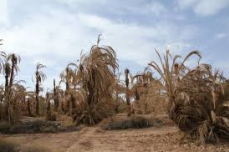 Desertification in Tafilalet:
Desertification in Tafilalet:
Women in the Tafilalet region increasing burdens resulting from desertification, which leads to the degradation of farmlands and water resources, adding to the burden on women.
![]() Desertification in the High Atlas
Desertification in the High Atlas
Infrastructure projects funded by Bretton Woods institutions, such as dams, often lead to desertification and soil degradation further impacting women-led agricultural activities.
Impact of drought in Souss Massa:
Women who earn their living from agriculture in the region of Souss Massa are heavily impacted by drought and water scarcity, which led to lower harvests and worsened economic hardships.
Pollution in large cities
Women in large urban centers, such as Casablanca, suffer from air pollution emanating from factories and cars. This has causes adverse health effects, notably among pregnant women, children and infants.
Efforts aiming at mitigation and women support
![]() Local and international initiatives
Local and international initiatives
Women-led cooperatives have been supporting sustainable farming that can offer women a source of revenue. These include, Argan oil production cooperatives, which contributed to protecting the environment, while offering economic opportunities for women.
Education and training:
Awareness raising programs aimed to equip women with sustainable agriculture techniques, to be able to efficiently use natural resources. These included drip irrigation and water management.
Environmental policy support
Influencing policies: by ensuring stricter environmental protection provisions, while putting in place accountability mechanisms to monitor the environmental impact of large-scale projects.
Sustainable agriculture initiatives: Some NGOs have been offering training on sustainable farming benefiting women. These included drip irrigation to increase the yield with fewer water resources.
Natural resource management in the High Atlas: In this mountainous area, Amazigh women have been playing a vital role in natural resource management, as they work in farming, collecting medicinal herbs and aromatic plants.
Air quality improvement initiatives: These include initiatives to use public transportation and promote electric mobility as well as monitoring air quality.
Conclusion
The negative environmental impact of policies imposed by Bretton Woods Institutions have soared to undermine the role of women in the management of households, resources and the local economy. There is, therefore, a pressing need for development policies that take into account the environmental and social dimensions, while empowering women, through offering them the necessary resources to address these challenges.
References
Le CADTM dénonce l’inaction climatique et la poursuite dans la voie néolibérale des
: ع institutions de Bretton Woods, 23 avril par CADTM International
https://www.cadtm.org/Le-CADTM-denonce-l-inaction-climatique-et-la-poursuite-dans-la-
voie neoliberale
https://www.project-syndicate.org/commentary/imf-world-bank-can-be-empowered-to-
address-global-commons-problems-by-joaquim-levy-2-et-al-2024-04/arabic
https://test.jinhaagency.com/ar/albyyt/fatmt-yasyn-alnsa-akbr-dhaya-alashkalat-albyyyt-wly-
rasha-altghyr-almnakhy-14845
Assemblées de printemps du FMI et de la Banque mondiale
project-syndicate Apr 15, 2024 JOAQUIM LEVY, AXEL A. WEBER, and SIDDHARTH TIWARI
مؤسسات بريتون وودز التي نحتاج إليها حقا متوفر على :
jinhaagency فاطمة ياسين: النساء أكبر ضحايا المشكلات البيئية وعلى رأسها التغير المناخي الأحد 25 يوليو 2021



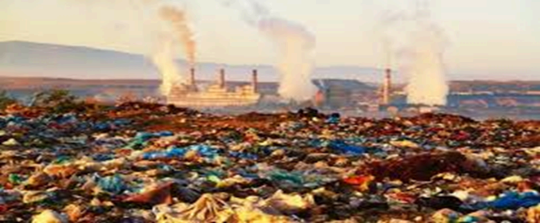 Structural adjustment programs:
Structural adjustment programs: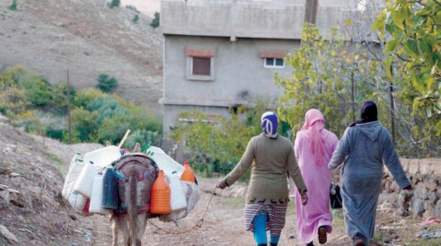
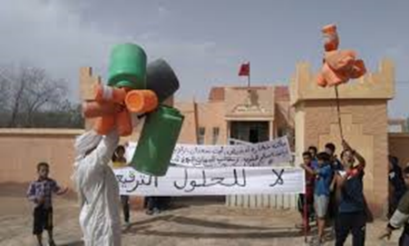
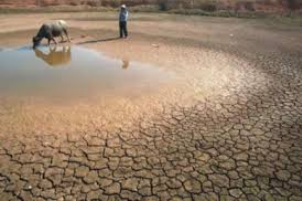 Desertification in the High Atlas
Desertification in the High Atlas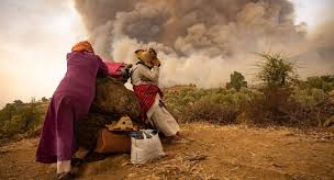 Local and international initiatives
Local and international initiatives